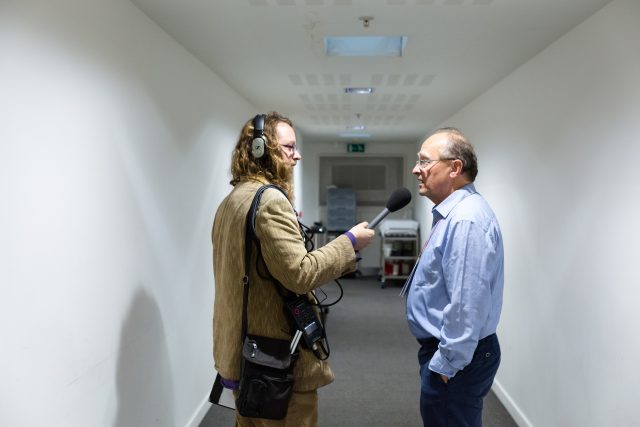Earlier this year, we travelled to Turin to take part in Fixfest Italia – the first national community repair gathering in Italy.
In the lead-up to Fixfest 2019 in Berlin, as an unusual treat, we are now sharing our first ever Restart Radio episode in Italian! It features interviews recorded in Turin during the event, capturing participants and organisers’ excitement, and the energy at the event.
Fixfest Italia took place within the Turin Mini Maker Faire, and included sessions on a range of topics, including campaigning for the Right to repair, teaching repair in schools, increasing collaboration in between local initiatives, and sharing best practices on insurance and outreach to potential volunteers. We enjoyed attending the event and meeting Restarters from 9 groups. And at the end of the event, our hosts Restarters Torino, threw a wonderful Restart Party, showcasing their diverse community of repair enthusiasts, local repair professionals and students joyfully repairing together.
If you are an Italian speaker, or you’d like to practice your Italian, go ahead and listen to this episode. If you need any help, you can also find the whole audio transcript below. If you don’t speak Italian – don’t despair, our regular podcast in English will be back later this month!
Many thanks to Restarter and audio engineer Stefania Fantini, who interviewed participants and edited the podcast. And thanks to Sergio Almerares from Restarters Milano for the full transcript in Italian.
Links:
*************************************************************
FULL AUDIO TRANSCRIPT
- (0:34) Benvenuti a una puntata speciale di Restart Radio, (la) prima in Italiano.
E la dedichiamo alla prima edizione di Fixfest Italia 2019 che si e’ tenuta a Torino il 4 maggio e ha visto la partecipazione di gruppi Restarters e Repair Café da mezza Italia, persone che molto spesso non si erano mai conosciute ancora dal vivo e finalmente hanno avuto l’occasione di scambiarsi idee e consigli e opportunità per far crescere il movimento della riparazione e guardare alle prossime sfide che ci attendono.
Alla fine dell’incontro è emersa una voglia di fare rete insieme, quindi vedremo più’ collaborazioni in Italia sia tra i gruppi che hanno partecipato che fra i gruppi che purtroppo non sono potuti venire a Torino in questa occasione ma sicuramente verranno e ci sono 2 modi (in cui) questa collaborazione potrà essere fatta.
Prima di tutto attraverso la piattaforma restarters.net e poi attraverso il manifesto di Torino a cui si è lavorato durante il Fixfest che presto sarà pubblicato ma e’ gia’ visibile sulla piattaforma e che speriamo tutti i gruppi in Italia firmeranno e aiuteranno a diffondere per far crescere la consapevolezza del diritto alla riparazione.
Buon ascolto e grazie a Stefania per aver raccolto le interviste e grazie soprattutto a Rosario e Antonio per aver organizzato una così bella e piena di energia edizione del primo evento.
Ciao.
- (2:14) Sono con Rosario di Torino, l’host del primo Fixfest Italia. Parlami un attimo innanzitutto del tuo gruppo.
Il mio gruppo di Restarter e’ un gruppo molto diciamo… unito anche se frastagliato. Ci sono parecchie competenze suddivise tra i vari membri di questo gruppo. Condividiamo conoscenze, questo è stato presente, anche una delle tematiche dell’evento odierno. Ci muoviamo fornendo delle soluzioni di diverso tipo come assistenza settimanale, i Restart Party una volta al mese o ad eventi particolari. Quindi abbiamo una presenza sul territorio di Torino diciamo fluida ma siamo molto presenti diciamo.
- E questa esperienza di organizzare il primo Fixfest Italia?
E’ stata diciamo un’ esperienza sicuramente positiva, da un punto di vista temporale anche parecchio onerosa ma e’ stato per me… sono orgoglioso di aver organizzato il primo Fixfest italiano. Secondo me la condivisione della conoscenza e’ stato il tema centrale perché e’ come se ci fossimo presi una pausa dal mondo esterno per un attimo fare un confronto tra le realtà locali. Abbiamo preso i concetti diciamo più consolidati a livello locale ma li abbiamo poi resi quasi universali perche’ l’idea era anche consolidare una realtà italiana che si occupi di queste tematiche.
L’altra cosa importante secondo me non e’ solo come abbiamo iniziato il Fixfest ma come lo stiamo terminando. Ovvero dandoci degli obiettivi per il futuro. Sicuramente mi piacerebbe portare delle tematiche anche ad esponenti di pubblica amministrazione, o personalità che non si occupano di questo settore che e’ quello della sostenibilità ambientale e della riparazione eccetera, e cioè divulgare il più possibile queste informazioni anche a studenti ma anche a personalità di spicco che magari possono davvero cambiare e dare un contributo importante per il proseguimento di questi temi.
- (4:32) Sono con Stefano e Mike di Repair Café. Parlatemi un po’ del gruppo, del vostro gruppo. Che caratteristiche c’ha.
Eh, il nostro gruppo e’ Repair Café Pavia, e’ un piccolo gruppo. In Italia c’è una rete penso di 15, magari 20 Repair Café, il nostro gruppo Repair Café e’ uno dei più piccoli Repair Café in Italia, ma abbiamo un grande rapporto con il comune di Travaco’ Siccomario che e’ fuori di Pavia, magari 20 minuti dal centro di Pavia abbiamo un centro di riutilizzo e questo è interessante per me.
- Quali sono le cose che abbiamo visto oggi più interessanti in questo Fixfest e le cose che vi hanno colpito in quello che abbiamo detto.
Io sono stato molto interessato da.. la questione delle condivisioni del… diciamo le prerogative ambientali, rispetto dell’ambiente, la riduzione dei rifiuti e anche della trasparenza, perché alla fine e’ questo, quest’ambito si rivolge dal mio punto di vista verso la salvaguardia dell’ambiente ma anche la tutela del consumatore perché effettivamente il consumatore ha diritto di sapere se quanto acquista sara’ o meno riparabile, quale sarà il suo ciclo di vita previsto, e quant’altro. Questo penso che sia stato importante dal punto di vista ma anche per la definizione di queste cose e una possibile, un possibile intervento in campo politico.
Per me era molto importante imparare dall’altro e da tutto questo gruppo ho già imparato tanto, come sviluppare le reti, come organizzare gli eventi, anche a livello politico, a livello di attivismo, a livello di policy, si, questo era molto e’ molto importante. Oltre che conoscere le persone coinvolte, certo, si’, si’, si’, questo e’ molto, molto importante perché si’, noi siamo una parte di questo piccolo Repair Café Pavia ma io sono l’Admin della pagina Facebook Repair Café italia e conosco tutti i Repair Café in Italia ma non… hai capito, solo in virtuale.
- Cosa vi piacerebbe fare con gli altri membri di questa rete che si e’ costituita in qualche modo oggi?
Le proposte sono state tante, partendo dalla questione delle proposte veramente a livello politico per poi arrivare anche alla tutela della sicurezza nell’ambito, in ambito operativo, parlando anche di come favorire l’associazionismo, come diciamo attuare strategie di marketing per spargere un po’ la voce degli eventi e anche la questione assicurativa che fondamentalmente è una cosa che e’ importante insomma.
- Dopo questo Fixfest Italia che cosa vorresti fare insieme agli altri?
La prima cosa e’ sviluppare una rete di comunicazione più forte fra noi, la seconda magari organizziamo gli eventi in comune, per esempio International Repair Day tutti noi facciamo qualcosa.
- (8:23) Sono con Vittoria del Repair Café di Trento, allora, parlami un po’ del tuo gruppo.
Allora, il Repair Café Trento nasce ad opera di quattro volontari di due associazioni differenti del territorio trentino che sono l’associazione Carpe Diem e la Cooperativa Caleidoscopio e nasce nel 2017 e l’obiettivo che ci ha portato un po’ ad interrogarci rispetto a portare il movimento dei Repair Café a Trento e’ perché siamo rimasti molto interessati appunto alla filosofia di base dei Repair Café. Abbiamo fatto una visita in Austria dove abbiamo visto come veniva sviluppato il Café Repair in Austria ad Innsbruck vicino a noi e poi abbiamo provato a accettare questa sfida di provare a proporlo sul territorio trentino che benché piccolo e già anche abbastanza saturo di eventi secondo noi aveva un vuoto per quanto riguarda proprio questa interruzione della logica duale dell’acquisto, del rifiuto e dell’acquisto di nuovo insomma e ci ha trovato queste due, l’associazione e la cooperativa unite insomma in questa finalita’. L’altra cosa che ci unisce come realtà del sociale e’ la necessità, la voglia di lavorare con la comunità, quindi la riparazione diventa una scusa per uscire di casa, per incontrarsi, per stare insieme, per fare spogliatoio, per creare una community di riparatori, e questo diciamo e’ il nostro obiettivo che ci sta’ proprio più a cuore e che sappiamo fare meglio.
- Quali sono state secondo te le cose più interessanti in questo Fixfest Italia.
Sicuramente la possibilità di ascoltare esperienze simili ma diverse e quindi la possibilità proprio della condivisione del know-how, nel senso che anche solo le persone che propongono i Repair Café in un’altra città lo fanno con modalità e perseguendo lo stesso obiettivo ma appunto attraverso delle modalità operative differenti. Ascoltare queste testimonianze, conoscere queste persone diventa sicuramente un momento foriero di nuova conoscenza insomma, quindi di nuove competenze anche per chi come me si occupa principalmente dell’organizzazione.
- Cosa ti piacerebbe fare con gli altri membri di questa rete?
Ah, beh, sicuramente continuare ad incontrarsi perche’ appunto per una non eccessivamente tecnologica come me il contatto visivo, umano e anche solo passare comunque una giornata insieme diventa davvero molto produttivo anche a livello di relazione nel senso che io mi porto via oltre alle parole anche le facce e le esperienze insomma delle persone che ho conosciuto oggi e quindi spero di poterle rincontrare e dopo di che appunto se si riesce a rimanere in contatto tramite la piattaforma, la community, le mail, il telefono credo che questo sia solo utile a ampliare il cappello di collaborazioni che potrebbe esserci anche in futuro.
- (11.24) Sono qui con Federico di Restart Milano. Introduci il tuo gruppo. Che caratteristiche ha?
Allora, noi del gruppo Restarters Milano siamo praticamente nati o comunque gravitiamo attorno a una associazione chiamata PCOfficina che si occupa, da’ nuova vita a computer vecchi, quindi persone che hanno computer che funzionano e non sanno cosa farne oppure semplicemente vorrebbero riutilizzarli cerchiamo di dare nuova vita attraverso il software libero. Da questo poi diciamo che molti di questa associazione sono, soprattutto quelli appassionati di elettronica e quelli un po’ più smanettoni hanno fatto parte, si sono raggruppati nel movimento Restarters, ecco. Siamo composti diciamo in modo un po’ eterogeneo nel senso che ci sono persone appassionate di elettronica, altre più di meccanica, però mediamente insomma operiamo su elettrodomestici, magari c’è stata qualche riparazione, una macchina da cucire una volta quindi anche qualcosa di un po’ più meccanico.
- Dimmi un po’ le cose che ti hanno colpito, più interessanti che hai sentito a questo Fixfest Italia
Ci sono state diverse cose, soprattutto e’ stato bello vedere come altri gruppi avessero gli stessi problemi, i problemi alla fine erano comuni tra gruppi. Come vengono gestiti gli eventi quindi alcune volte non si e’ organizzati, si arriva un po’ così diciamo alla cieca, arriva l’evento e poi magari ci si ritrova in due, 20 persone che vogliono riparare le cose quindi le problematiche più comuni. Poi dopo è stato bello vedere come molti gruppi magari avessero gia’ affrontato o comunque risolto problematiche che sono tuttora magari in discussione ad esempio nel gruppo Restarters Milano. Quindi insomma e’ stato bello uno scambio di conoscenze, di idee, di proposte molto interessante. Si e’ parlato un minimo anche sulla parte di finanziamento, quindi come i vari gruppi riescono a gestire il problema economico perché comunque, insomma, a muoversi, spostarsi con la macchina, o coi mezzi ha dei costi, alcune volte mancan gli strumenti, le attrezzature, i pezzi di ricambio, quindi insomma si e’ parlato di veramente di tutto ed e’ stato bello.
- Cosa ti piacerebbe fare con gli altri membri della rete?
Beh, con gli altri membri della rete… innanzitutto partecipare attivamente sul sito restarters.net innanzitutto sul discorso Wiki quindi mettere a disposizione la conoscenza che la singola persona o il gruppo Restarters in questione ha maturato nel corso del tempo e poi porterei nel mio gruppo Restarters tante idee innovative o comunque diciamo tante soluzioni ai vari problemi di cui si e’ parlato, coinvolgere anche nuove persone, nuovi membri, nuovi riparatori perché una cosa comune e’ che ad esempio mancano giovani riparatori al movimento. Spesso ci si ritrova appunto ad essere in pochi e insomma, vabbe’, grossi problemi di questo tipo.
- (15.05) Sto con Marcello di Bologna. Parlami un attimo del tuo gruppo.
Noi siamo un gruppo nato a Bologna un paio di anni fa quindi nel maggio del 2017. Siamo partiti facendo riparazioni di varia natura. Non abbiamo ristretto il campo delle riparazioni, abbiamo fatto molti elettrodomestici, biciclette, un pochino di elettronica, un po’ di incollaggi, cose semplici anche, molto per aumentare più possibile la platea e ad oggi cerchiamo di fare un evento di riparazione al mese. Siamo in una quindicina di persone e siamo una associazione. Cerchiamo di collaborare con il comune all’interno di progetti per il quartiere specifico che e’ Saragozza. Attraverso questi eventi cerchiamo di fare “dissemination” di cultura della riparazione, del riuso.
Riparo, Uso Scambio Comunitario.
- Quali sono state le cose più interessanti che avete sentito a questo Fixfest?
In generale la cosa più interessante e’ stata la complessita’ degli argomenti. La complessita’ e la varieta’. A prescindere dai singoli argomenti trattati. Pensavo fosse una cosa molto più semplice, semplicistica invece c’è un approccio molto complesso, interessante e che ha una storia dietro molto elaborata.
- Abbiamo visto che effettivamente ci sara’ una rete di Restart Italia. Cosa ti piacerebbe fare con gli altri membri dell’arena?
Sicuramente parteciperò agli eventi di cui si parlava in streaming per riparazioni elettriche ed elettroniche perché questo soprattutto e’ uno delle pratiche che ci manca maggiormente all’interno del gruppo. E dopo mi sono gia’ iscritto al sito di Restarters per cui anche lì seguirò quello che succede, cercherò di contribuire al Wiki.
- (17.32) Sono qui con Thomas di Rimini. Parlami un po’ del tuo gruppo.
Il nostro gruppo e’ nato circa 2 anni fa in collaborazione con una associazione che si chiama Campolavoro. Questa associazione operava già nel recuperare materiale e prodotti vecchi da destinare al riciclo e al riutilizzo. Noi diciamo abbiamo iniziato a collaborare proprio perché riuscivamo a dare un qualcosa in più al materiale riparandolo e quindi potendolo rivendere come usato e quindi diventare da un lato risorsa dall’altro dare ancora vita a prodotti che altrimenti sarebbero destinati al rifiuto.
- Quali sono state le cose per te più interessanti che hai sentito in questo Fixfest Italia?
Io personalmente mi sono sentito molto inadeguato perché ho trovato persone molto preparate, anche … quello che mi e’ piaciuto e’ che ho trovato persone che hanno dato una forma politica e ideologica a un sentire che in molte persone abbiamo e noi non siamo in grado di dargli questa forma. Io semplicemente uso le mani per riparare dei prodotti. Qui invece stiamo costruendo anche un’idea e un messaggio da passare per costruire un futuro dove le risorse devono avere una importanza molto maggiore perché ne stiamo usando troppe di risorse e le stiamo consumando male, quindi vorremmo cercare non di limitare le persone ma chiediamo di usare responsabilmente le risorse che abbiamo.
- Cosa ti piacerebbe fare, con gli altri, all’interno di questa nuova rete?
Sicuramente con le altre persone ci si riesce a dare un po’ forza, non sentirsi soli.
Sarebbe bello in un futuro, non si sa quando, se remoto o vicino, vedere altri gruppi che nascono, da costruire delle reti anche più vicine, adesso che ho notato che comunque i gruppi sono un po’ lontani, Rimini, Bologna, Milano, Torino. Riuscire a creare una rete anche più locale darebbe più forza e più sostegno a iniziative che altrimenti in certi casi vengono portate avanti da poche persone che a volte, giustamente, ogni tanto possono anche sentirsi stanche o diciamo non riuscire a garantire sempre in maniera continuativa certe iniziative.
- (19.55) Parlavo adesso con Sara di Aosta. Dimmi un po’ come e’ organizzato il tuo gruppo.
Allora, il mio gruppo praticamente sono io e con l’aiuto di Orsetta che però’ vivendo a Londra non e’ proprio comoda comoda. Quando lei viene in vacanza da sua mamma organizziamo i Restart. Quindi ne organizziamo praticamente tre all’anno, uno a Natale, uno a Pasqua e nelle feste comandate. E poi abbiamo alcuni riparatori che girano però sono un po’ così “ondivaghi” per cui non si riesce mai a sapere da una volta all’altra se ci saranno o no. Volenterosi ma… cosi’.
- Quali sono state le cose più interessanti che hai sentito in questo Fixfest Italia?
In realtà la cosa che mi e’ piaciuta di più e’ stato vedere che ci sono altri come me, toccare con mano appunto che ci sono gli altri gruppi e che hanno più o meno gli stessi problemi che ho io e che quindi insomma e’ stato bello confrontarsi.
- (21.01) Sono qui con Luca di Langhe Roero. Dimmi un po’ del gruppo che c’hai di Restarter.
Faccio parte del gruppo Restarters Langhe Roero, siamo una decina di persone, non abbiamo una base fissa, siamo nomadi cioè giriamo nelle varie manifestazioni, siamo tutti volontari, appassionati di elettronica e di riparazione.
- Quali sono le cose che hai trovato più interessanti in questo Fixfest italia?
Vabbè, innanzitutto e’ quello di aver … di poter incontrare gli altri gruppi quindi altri gruppi di Restarters ma anche dei Repair Café e conoscere gente nuova e con alcune persone magari ci si conosceva solo attraverso i social per dire e quindi vedersi faccia a faccia e quindi molto interessante, cioè questa cosa del Fixfest sicuramente sarà una cosa che porteremo avanti una volta all’anno proprio per incontrarci e capire anche come gli altri si comportano rispetto a questo movimento.
- Cosa ti piacerebbe fare con gli altri membri della rete?
Vabbè, innanzitutto sicuramente collaborare, condividere le varie esperienze e le varie capacità anche attraverso questa piattaforma poi attraverso i Wiki per avere poi un’unione, una unione di fatto, di pensiero e di prospettiva anche per il futuro. Cioè crescere insieme e fare gruppo e quindi più siamo e più abbiamo anche una forza e una voce rispetto anche alla politica voglio dire. E sicuramente è un momento di crescita perche’ proprio condividere e capire anche che molte problematiche ci uniscono anche e per cui se i problemi sono gli stessi, più persone si riesce a trovare una soluzione.
The post Restart Radio: Stories from Fixfest Italia appeared first on The Restart Project.

 Our TOPPODCAST Picks
Our TOPPODCAST Picks  Stay Connected
Stay Connected





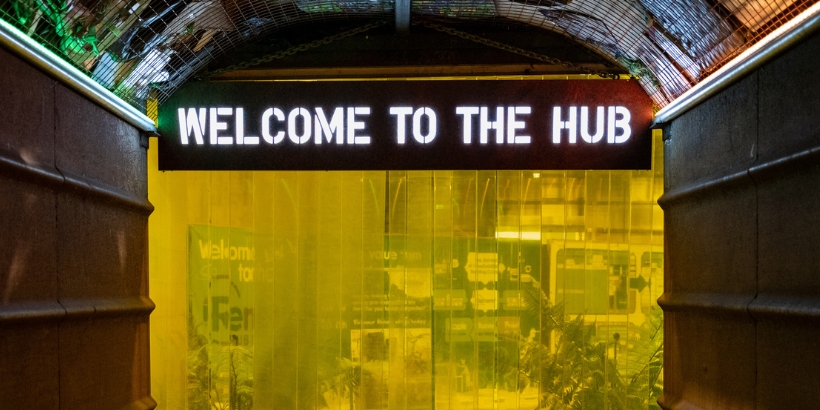
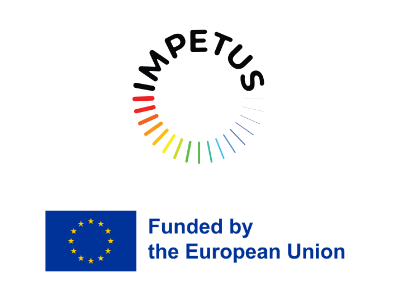 IMPETUS is funded by the European Union’s Horizon Europe research and innovation programme under grant agreement number 101058677. Views and opinions expressed are, however, those of the author(s) only and do not necessarily reflect those of the European Union or the European Research Executive Agency (REA). Neither the European Union nor the granting authority can be held responsible for them.
IMPETUS is funded by the European Union’s Horizon Europe research and innovation programme under grant agreement number 101058677. Views and opinions expressed are, however, those of the author(s) only and do not necessarily reflect those of the European Union or the European Research Executive Agency (REA). Neither the European Union nor the granting authority can be held responsible for them.

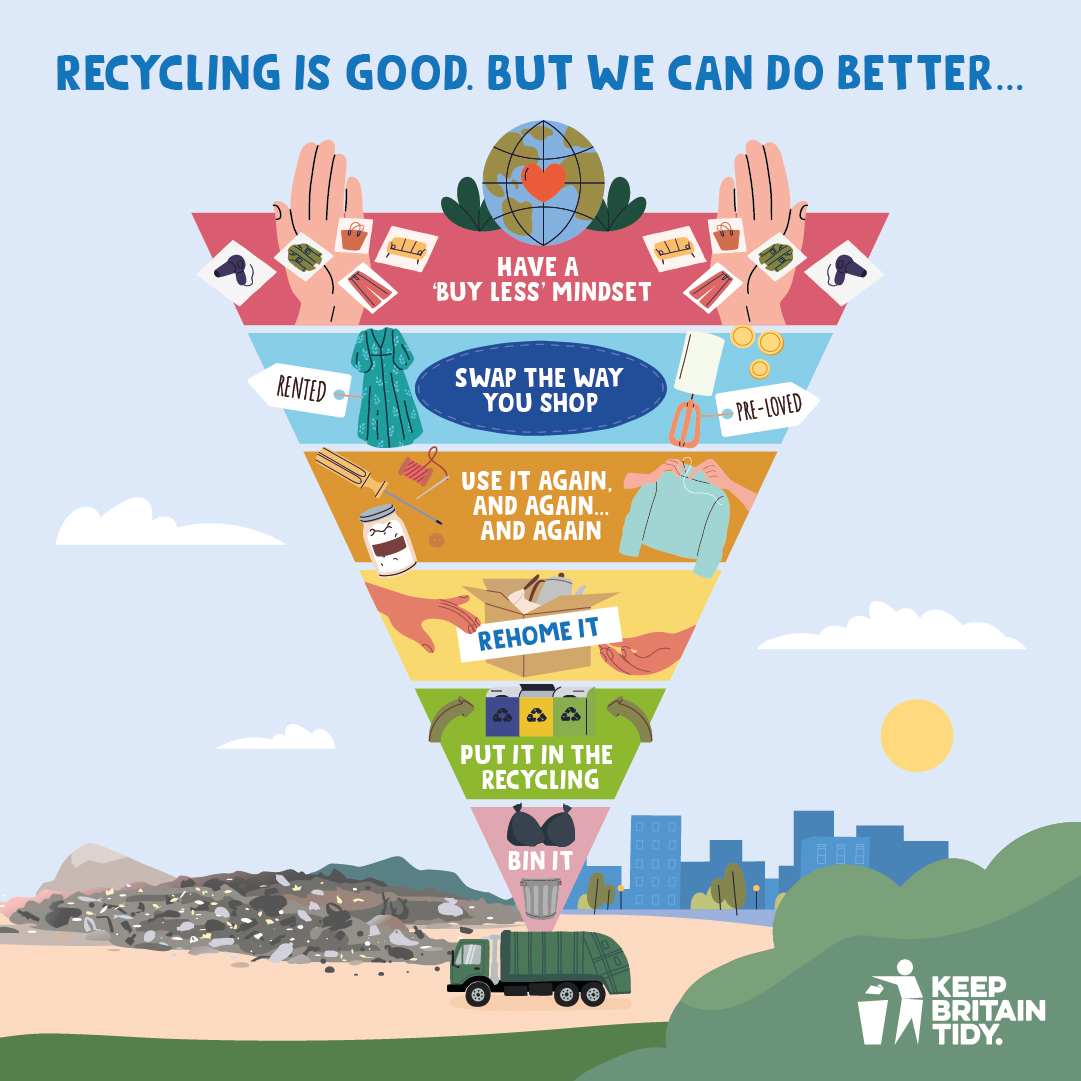
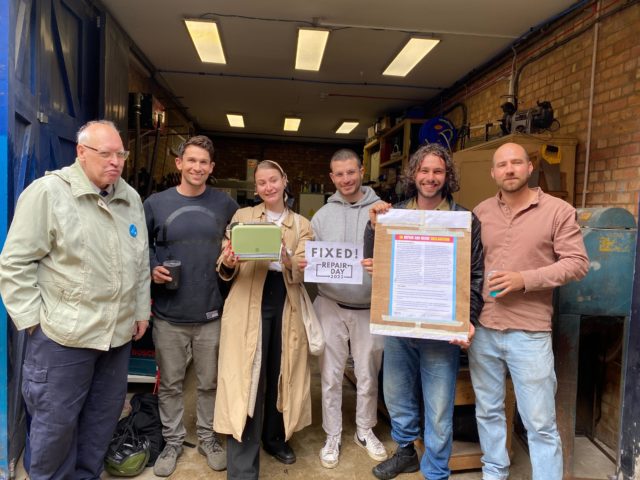









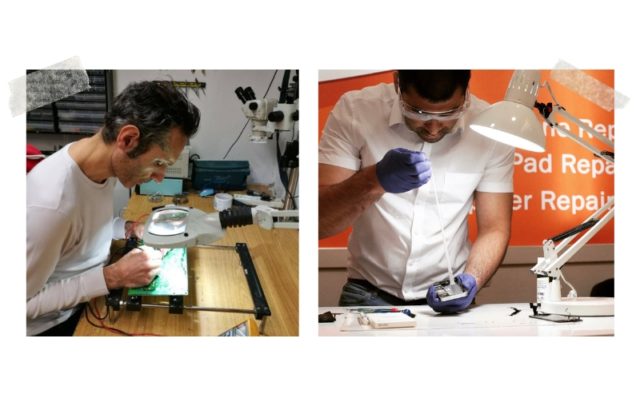








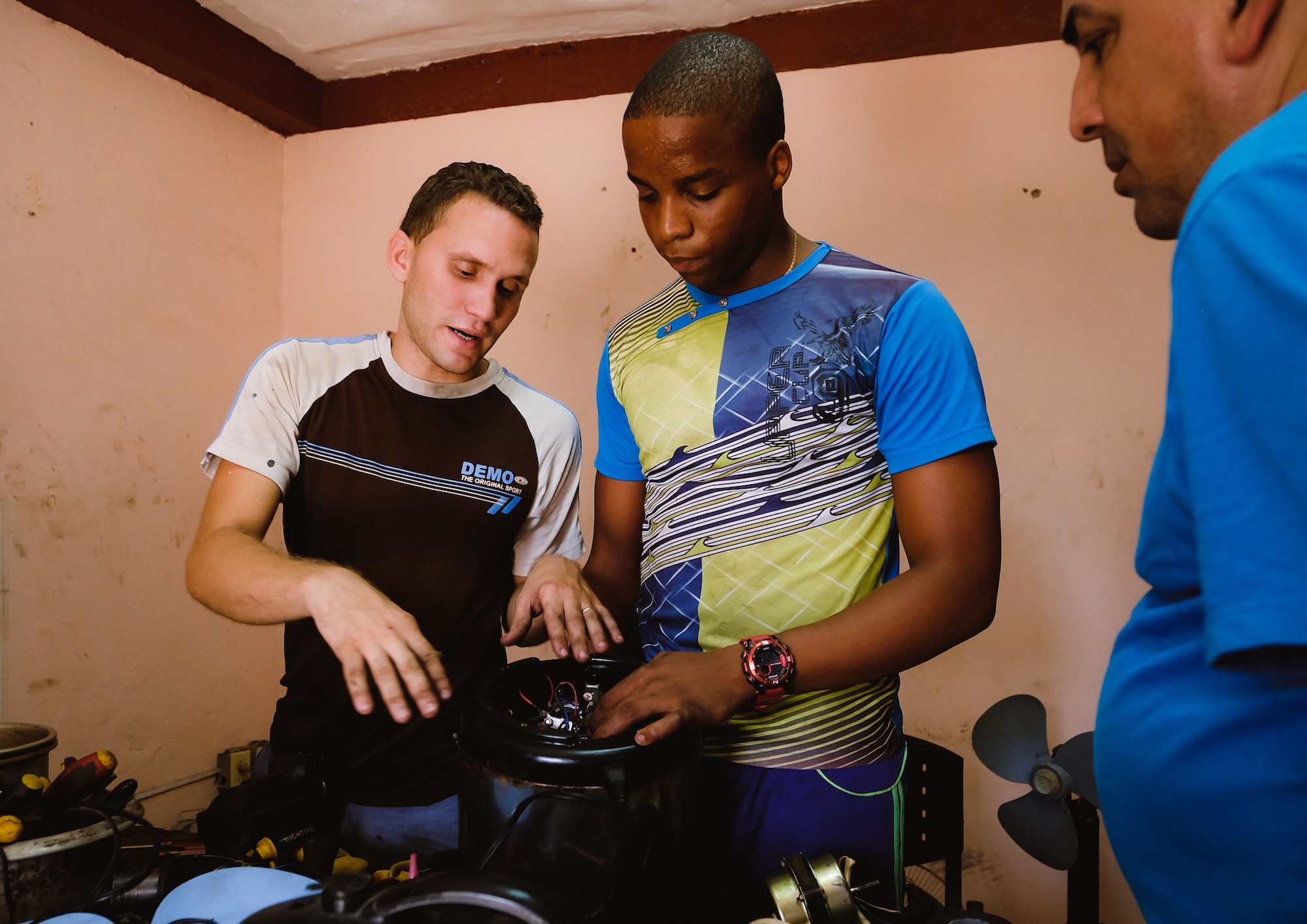



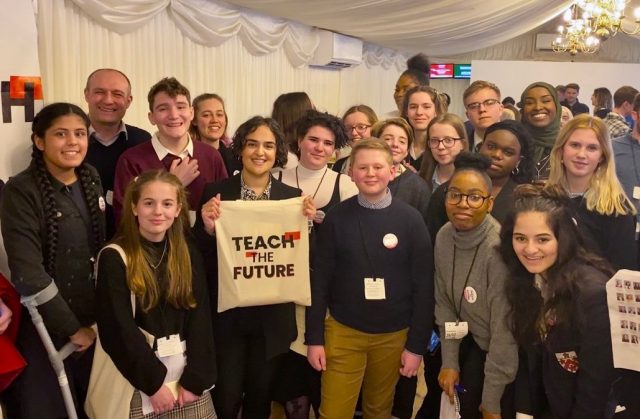
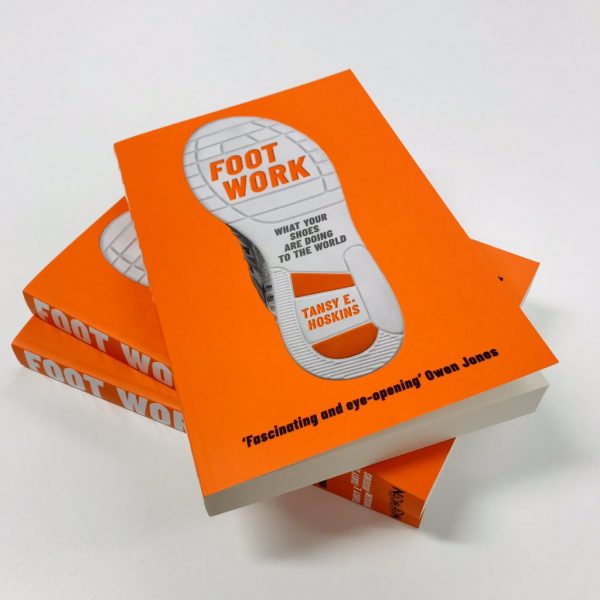















 The sense of ownership and control that we gain from building things ourselves stands in sharp contrast to some of the current models of electronic gadgets, where users feel locked out of the knowledge they need to use their products effectively.
The sense of ownership and control that we gain from building things ourselves stands in sharp contrast to some of the current models of electronic gadgets, where users feel locked out of the knowledge they need to use their products effectively.








